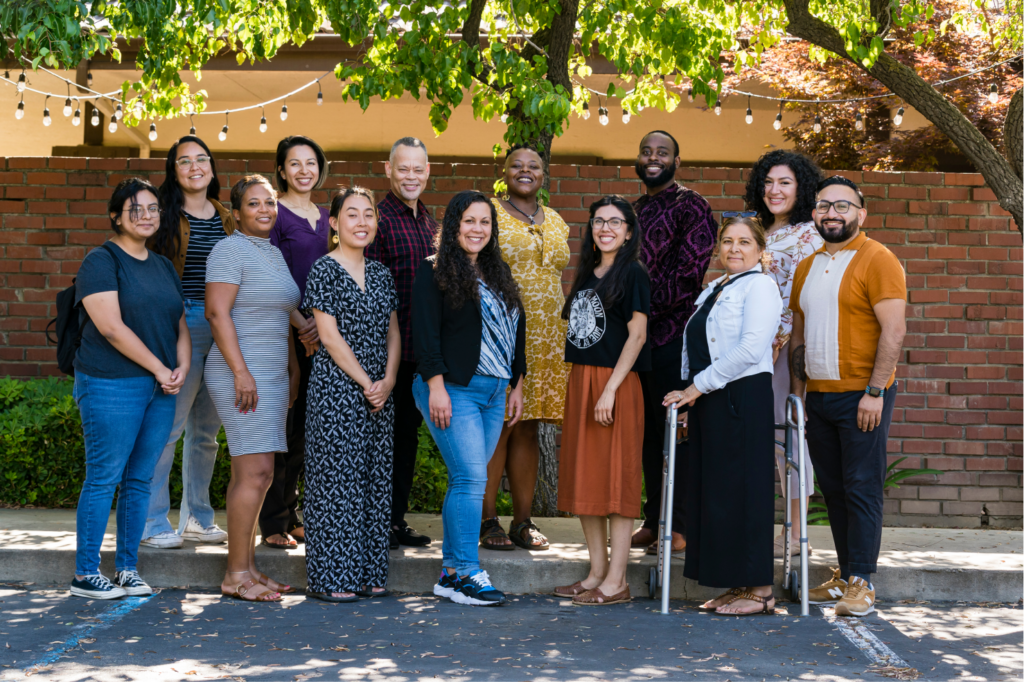Twenty-seven groups from across California convened in Fresno last week to advance locally-owned & controlled real estate, created by developers of color rooted in local communities across the state.
The convening was part of California Community-Owned Real Estate program (CalCORE), a five-year state-wide initiative led by Community Vision and Genesis LA. CalCORE’s mission is to address barriers to capital and capacity building that many community-based developers and developers of color face.
The program brings together cohorts of small and emergent developers with a focus on Black, Indigenous, People of Color-led real estate organizations – particularly Community Development Corporations and Community Land Trusts.
Community Vision and Genesis LA launched the first cohort in April 2021 with 14 community-based developers. Last week’s convening marked the launch of CalCORE’s second cohort with an additional 14 organizations. This second cohort focuses on acquiring and operating commercial real estate, including retail, nonprofit, light industrial and mixed-use spaces.
CalCORE consists of five key elements including: network building, cohort training, one-on-one advising and project support, developing a real estate service provider network, access to pre-development and project capital.
CalCORE’s strategy was developed, in part, by more than 20 interviews with community-based real estate entities led by people of color and specifically addresses the capacity and capital barriers that were common among the developers’ experiences.
Dishgamu Humboldt Community Land Trust is an Indigenous-led land trust organized under the Wiyot Tribe based in the Humboldt Bay Area in Northern California. Through land return, Dishgamu seeks to return public and private land within the unceded ancestral territory to the Wiyot Tribe. Dishgamu Humboldt calls on Native and non-native peoples to heal intergenerational trauma through the protection, preservation, cultural and environmental restoration of Wiyot Land.
EBPREC buys and preserves real estate to keep tenants of color housed, remove housing from the speculative market, and address root issues of poverty and disinvestment. They build a culture of democracy and cooperation by giving tenants and investors an opportunity to co-own and co-manage real estate property.

